A terminally ill 42-year-old English woman who refused food or water to hasten her passing has, in fact, passed.
Emma Bray from Barnstaple, England, was diagnosed with motor neuron disease two years ago.
She had been actively campaigning for Dignity in Dy*ng, and said that her decision to take control over her passing by voluntarily stopping eating and drinking, or VSED, would be her final act of parenting.
Her story has reopened the debate on the implications of medically assisted s**cide.
“Hug everyone a little tighter”: Emma Bray’s final Instagram message is one of hope

Image credits: stupid_mnd / Instagram
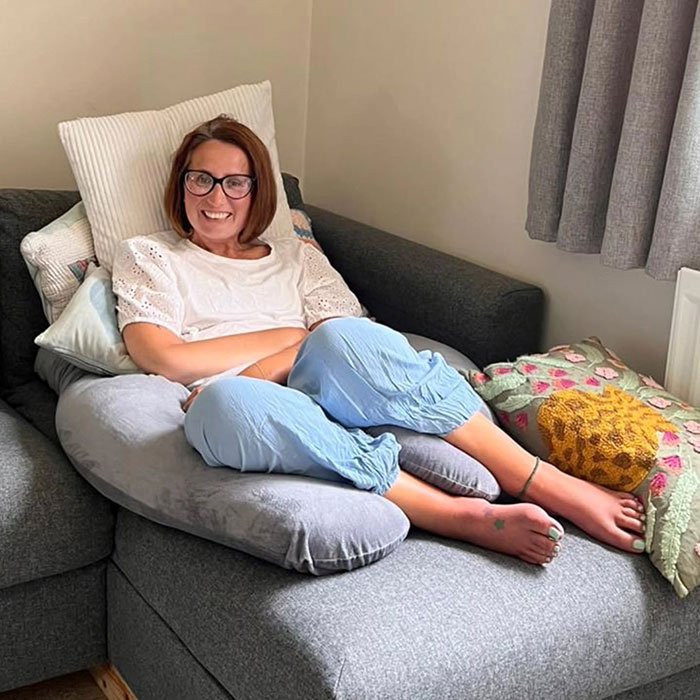
Image credits: stupid_mnd / Instagram
According to a post on Bray’s Instagram account from July 14th, Bray passed peacefully at a hospice center in Devon. In a photo, we see her in a hospice bed overlooking green treetops and fluffy white clouds.
“If you are reading this then I’ve finished my final spin round the sun,” the caption read.
It continued: “I’ve lived a very good life, surrounded by love, music and laughter and I want this to continue in my memory.”

Image credits: stupid_mnd / Instagram
She urged friends to ask themselves “what would Emma do” in times of doubt and encouraged people to “hug everyone a little tighter.”
She ended her post with a quote from a 2012 Frank Turner song called “Long Live The Queen”, a tune about losing a terminally ill friend.
“Remember you get to dance another day but now you have to dance for one more of us,” Bray’s post said.
MND, also called ALS or Lou Gehrig’s, causes rapid muscle loss, leading to passing

Image credits: stupid_mnd / Instagram

Image credits: stupid_mnd / Instagram
According to the Cleveland Clinic, ALS, amyotrophic lateral sclerosis—Lou Gehrig’s disease—is the most common motor neuron disease (MND) and the terms are used interchangeably.
The clinic’s website says: “ALS causes rapid loss of muscle control leading to disability and eventually de*th. There’s no cure for MND.”

Image credits: stupid_mnd / Instagram
When she received the diagnosis two years ago, Bray said in interviews, she was extraordinarily distraught.
“I remember howling like an animal when I realised the impact it would have on the children. My best friend was with me and, as we left, I said I wished it was cancer because there would be potential surgery or treatment, with MND there is nothing,” she said in an interview with The Mirror
Bray’s case has reopened the debate about whether assisted passing should be legalized
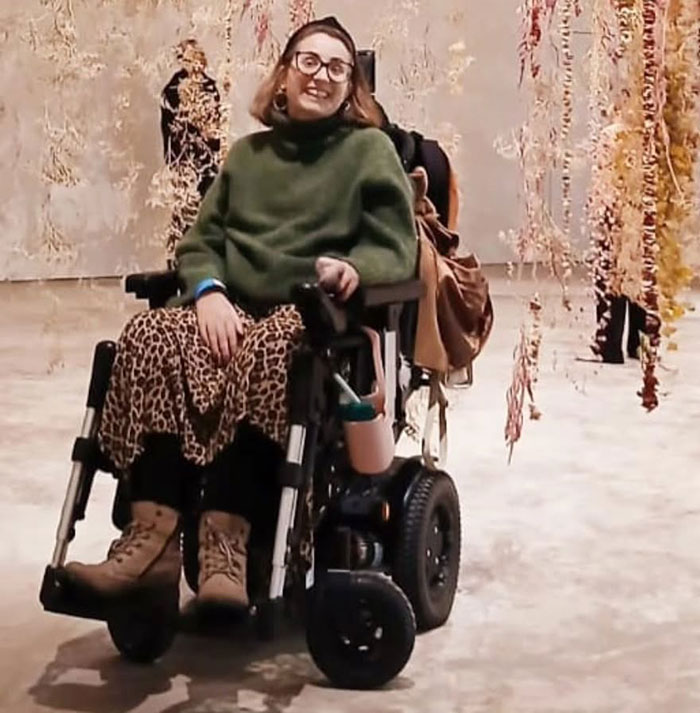
Image credits: stupid_mnd / Instagram

Emma had said that she was determined to live a full life because doctors told her the end would be very hard.
Roughly one month ago, Britain’s parliament voted in favor of the “Terminally Ill Adults (End of Life)” law, which would legalize assisted dy*ng, by a vote of 314 to 291.
Reuters reports that the bill “now proceeds to Britain’s upper chamber, the House of Lords, where it will undergo months of scrutiny.”

Image credits: stupid_mnd / Instagram
“The vote puts Britain on course to follow Australia, Canada and other countries, as well as some U.S. states, in permitting assisted dy*ng,” the article continued.
One of the most talked about cases of medically assisting su*cide happened in the forests of Switzerland with a device called a Sarco pod.
A criminal investigation is ongoing after an American woman in her 60s became the first person to use the device.
Also known internationally as the “euthanasia pod,” the device works by releasing a large amount of nitrogen, giving the recipient a “peaceful, dignified” end to life after about five minutes.
But local media says autopsy reports in the case revealed “strangulation marks” on the woman’s neck, prompting officials to consider the possibility of m*rder.
While assisted su*cide is legal in Switzerland, the Sarco su*cide capsule does not comply with the law, Swiss officials have said.
“The thing I hate most about MND”: Bray explains why she chose to stop eating and drinking
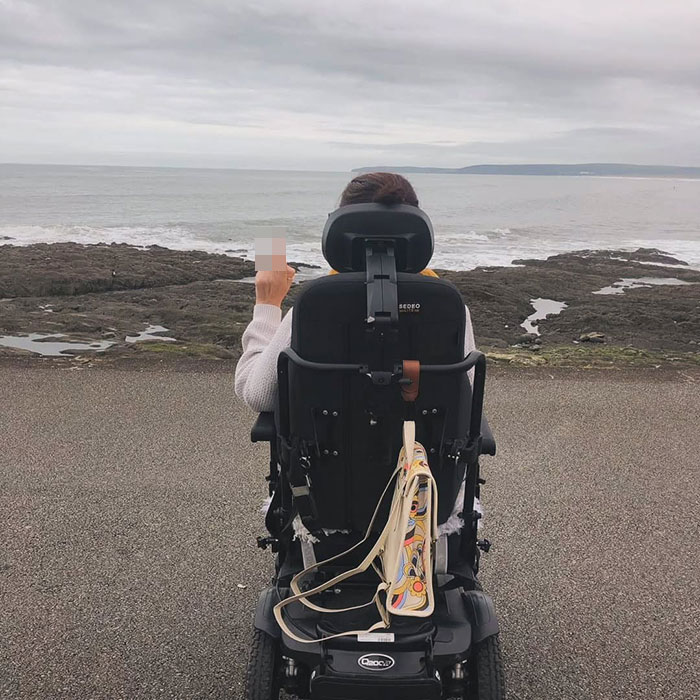
Image credits: stupid_mnd / Instagram
Bray had been a staunch advocate of passing a bill to legalize assisted su*cide, saying that had the bill passed, it would’ve prevented her loved ones from suffering for two years with anticipatory grief.
In interviews, she described the agonizing moment of not being able to hug her children when they were sad.

Image credits: stupid_mnd / Instagram

“Watching your children grieve for you and not being able to hug them is the most painful feeling ever. This is hands down the thing I hate the most about MND. It’s taken my children’s mum from them little by little,” she said in an interview.
“The last bit of parenting I can do is to limit the suffering and trauma they have to witness,” she concluded.
For these reasons, Bray said she chose VSED.
VSED is not easy, but it let Bray take control of the circumstances surrounding her passing

Image credits: stupid_mnd / Instagram
The Compassion in D*ing website explains that the practice of “voluntarily stopping eating and drinking” can be carried out by adults “with mental capacity to decide to do so and in the absence of control or coercion.”
They say passing from VSED typically takes between 10 to 14 days.
In choosing VSED, Bray has said that it’s not an “easy” way to pass, but that it was the only way she could have control over it.
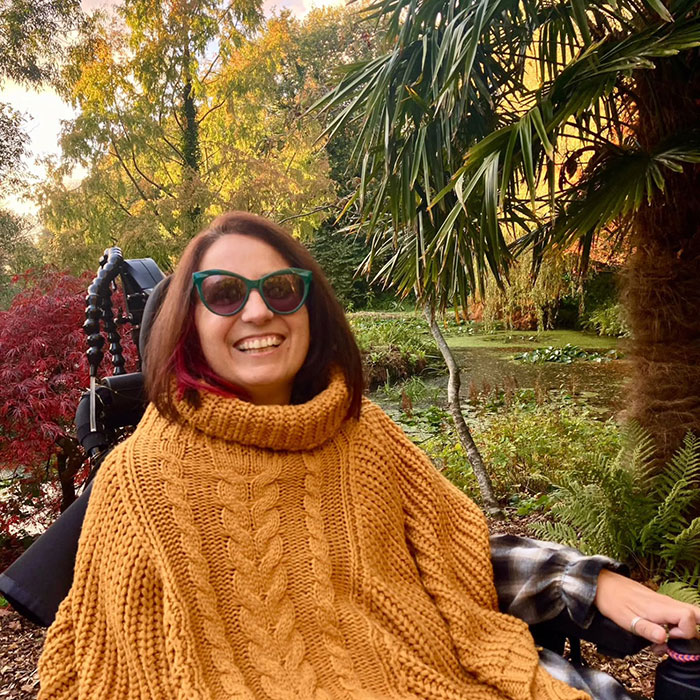
Image credits: stupid_mnd / Instagram
“I want to protect my children from seeing me choke and struggle to breathe,” she said, referring to the horrendous side effects of MND.
“I don’t want to d*e, but I am going to and have come to terms with my impending de**h, and I know I want to d*e surrounded by loved ones, music and laughter, not in an emergency way after further decline.”
Netizens remain split on whether medically assisted su*cide should be legalized












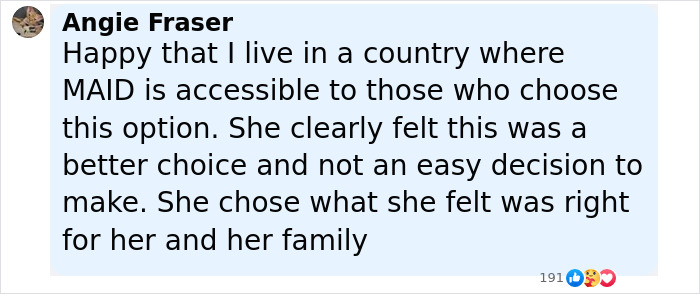







 Follow Us
Follow Us




